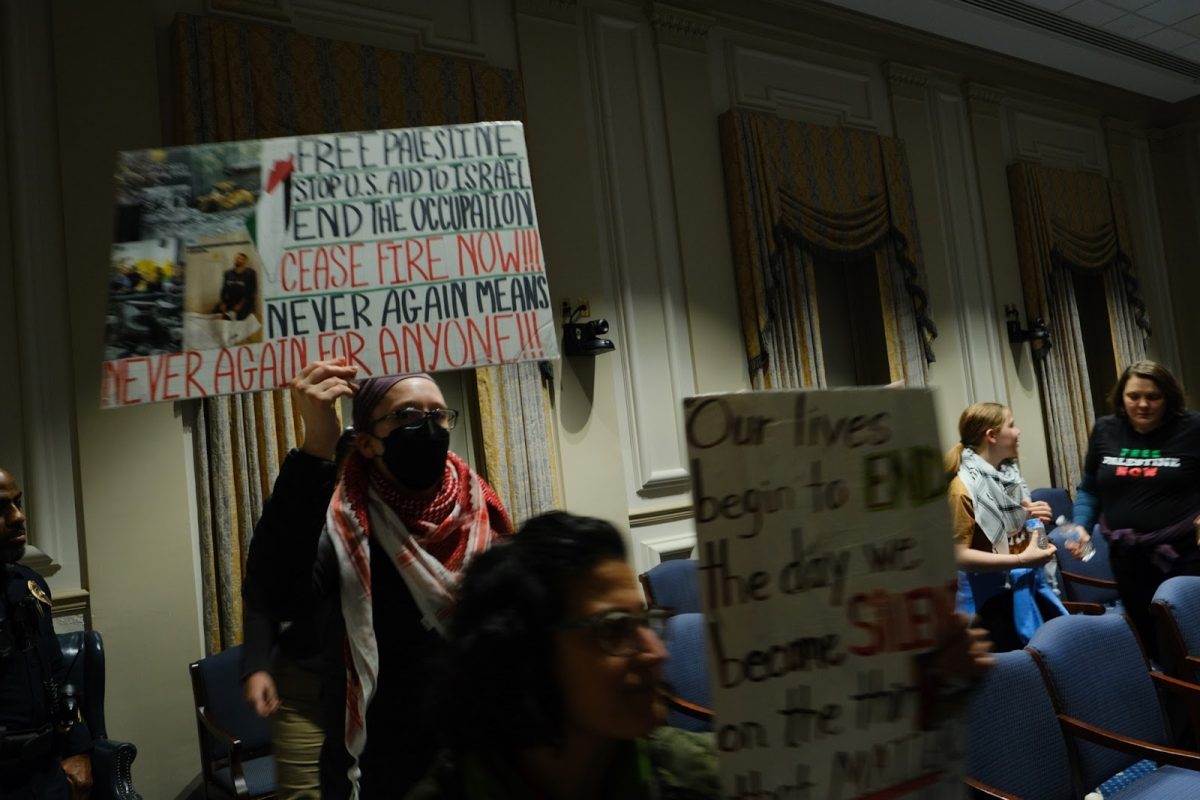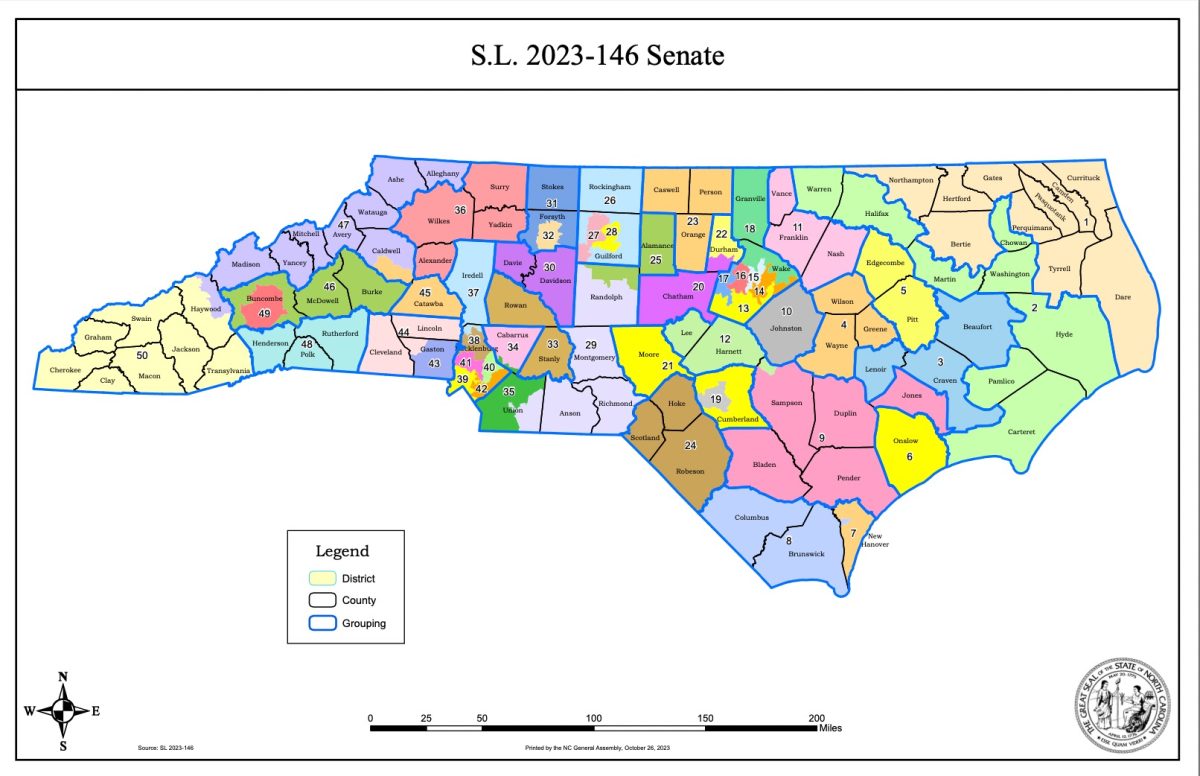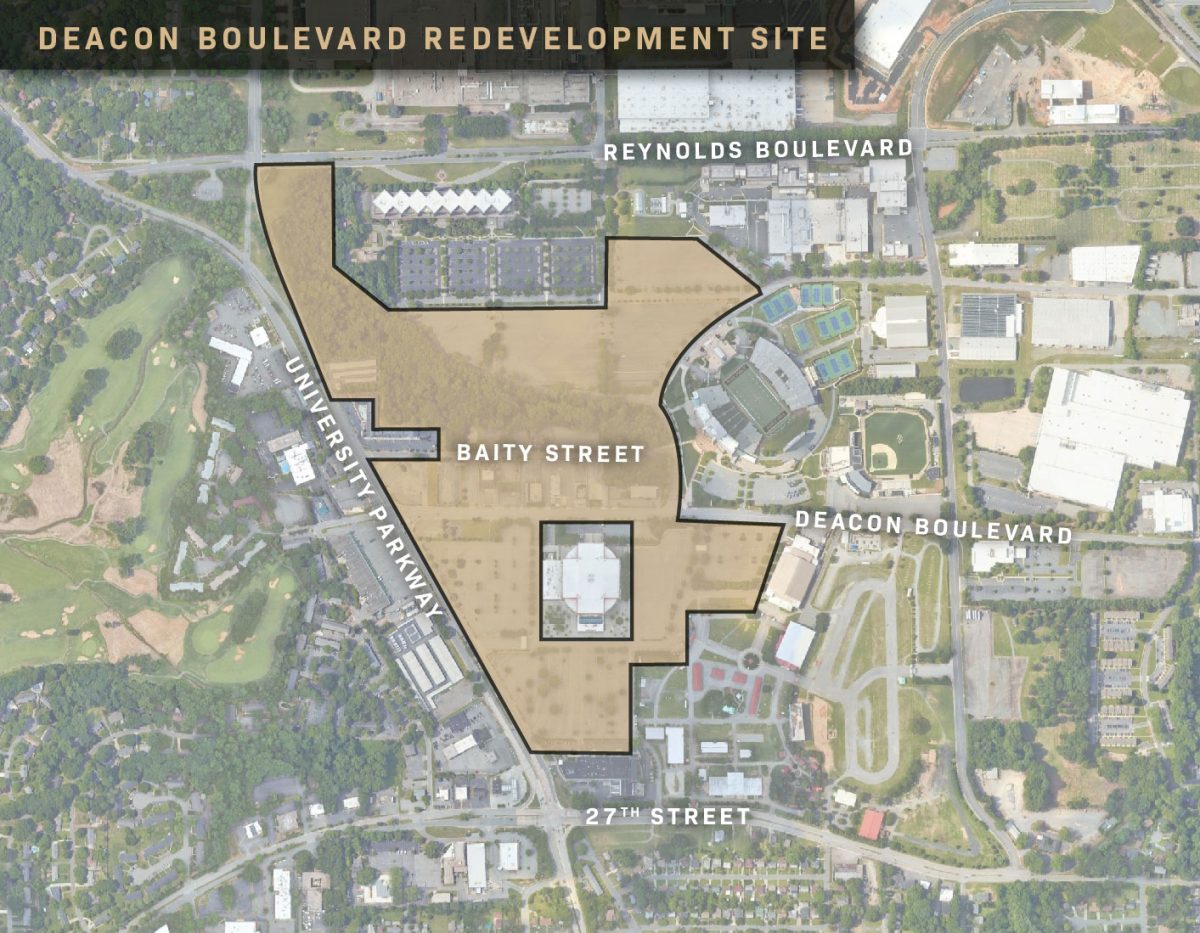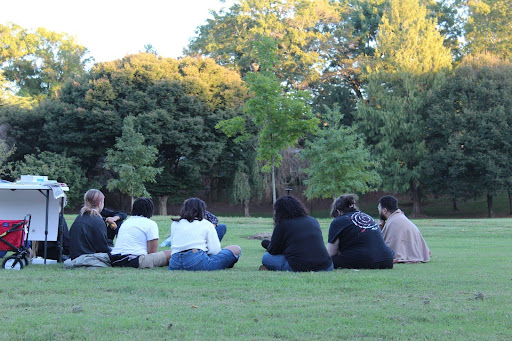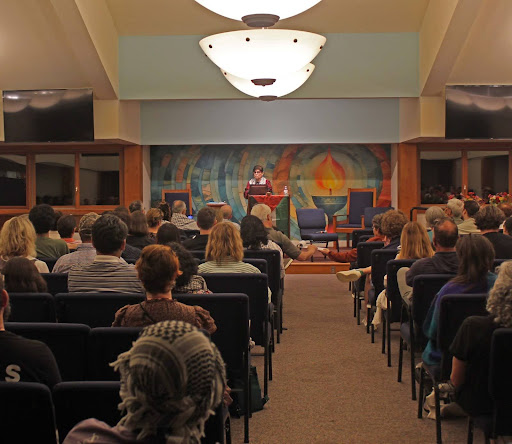
Wake Forest welcomed community leaders to lead a conversation titled “Data Dive: Housing Supply in Forsyth County,” in the Lower Auditorium of Wait Chapel on Feb. 29. The event was hosted by the Office of Civic and Community Engagement in partnership with Forsyth Futures.
As residents of Forsyth County face an affordable housing shortage, community members are looking to local officials for sustainable solutions. Affordable housing applies to homeowners and renters who spend no more than 30% of their gross income towards housing-related expenses. If a resident spends more than 30% of their yearly salary before taxes and other deductions on housing, they are classified as “cost-burdened.”
“Nearly 24% of Forsyth County residents live in cost-burdened homes,” Senior Data Analyst of Forsyth Futures Courtney Blue said.
The event started with an introduction from Executive Director of Forsyth Futures Adam Hill, who emphasized the importance of accessibility to stable housing. Blue then provided a thorough analysis of the current market trends and affordability metrics in the area.
The event continued with a panel discussion, moderated by Director of Community Partnerships and Experiential Learning Andrea Kurtz. Panelists included housing experts Richard Angino from Folks for Good Housing, Kevin Cheshire from the Housing Authority of Winston-Salem (HAWS) and Sandy Stinson from the Boston-Thurmond Neighborhood Association. Two out of the five panelists listed in the program did not participate in the panel due to unforeseen circumstances.
According to Blue, The shortage of affordable housing is largely explained by a metric called Area Median Income (AMI), which measures the midpoint of an area’s income distribution. Household income that is below 100% of the AMI is below average. Therefore, the residents of Forsyth County with a 30% AMI are classified as extremely low-income. The metric is measured on a spectrum, often heavily skewed towards higher-income households who can afford higher rent. Consequently, 30-50% of AMI households face a shortage of affordable housing because they can only afford a limited selection of housing options.
In Forsyth County, the AMI spectrum disproportionately favors higher-income households, creating a surplus of luxury housing and a shortage of affordable options according to Blue.
“For the 30% AMI households in Forsyth County alone, there is a 13,000 unit shortage of affordable rental homes,” Blue said.
Another explanation for the affordable housing crisis is that the cost of living and household income are not increasing at proportional rates in Forsyth County. This disparity has grown in the past decade, exacerbated by the COVID-19 pandemic, which the housing market has yet to recover from, according to Blue.
“The current median home value is nearly $250,000 in Forsyth County, which is a 24% change from 2010,” Blue said. “Contrastly, median employment income has only increased 3% since 2010.”
While the event surely lived up to the expectations of a “data dive,” efforts also focused on solutions for alleviating this shortage of affordable housing. HAWS has a Housing Choice Voucher (HCV) program, which provides subsidies to families to rent vacant units. However, this government program has its limitations. The program requires participation from property owners, which many are reluctant to do because of the paperwork and administrative burden. HCV also has a waitlist and time limits on finding housing once the voucher is issued to households. Furthermore, tenants have minimal recourse if landlords do not upkeep the property under the terms of this program.
“HAWS has a limited supply and waiting list, which has not been open since 2018,” Blue said.
Panelists also offered their expertise on devising tangible solutions to mitigating the complexity of this crisis. Angino dispelled the misconception that the government takes sole responsibility for expanding housing accessibility in Forsyth County.
“One of the biggest tools is getting employers to understand that it is not the government’s job to provide housing for their employees,” Angino said. “Employers automatically assume that counties and cities will figure it out for themselves.”
According to Kurtz, The Wake Forest campus has an important stake in this issue as the biggest employer in the greater Winston-Salem area. This position grants the university an opportunity to address the affordable housing challenge and foster community well-being.
“Our target audience is those who are interested in housing in the community, but we are really speaking to Wake Forest,” Kurtz said. “As the largest employer in our community, the university has a unique relationship to affordable housing.”
Housing stability is statistically connected to other social indicators such as child development, better health and increased economic opportunities. Panelists and attendees spoke to the larger idea that affordable housing is essential to fostering thriving communities.
“We have an affordable housing deficit in Forsyth County that will require a multi-faceted strategy to resolve,” event attendee Allyson Gold said.
Despite these obstacles, it is imperative to increase the accessibility of affordable housing in Forsyth County so that households of all income backgrounds can thrive in the community.
“If we want to be an economically vibrant city, we have to ensure that we are providing housing across the economic income spectrum,” Kurtz said.



